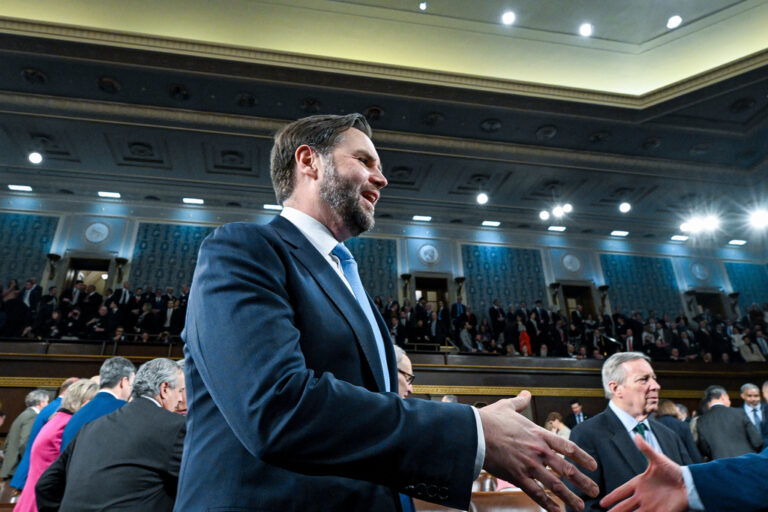Jewish parents are notorious for nudging, begging, and guilting their children to “get married already.” What they don’t realize is getting married in today’s ‘I want it all’ world is not a simple feat. Each year the Pew report shows a greater climb in Jewish people between ages 25-45 remaining single. In 2012, 63.3% of men and 45.8% of women aged 25-29 were single, compared to 54% of men and 33.3% of women who were single in 2000. These high numbers don’t account for marriages that shortly end up in divorce. And there’s no indication that they’re going to drop anytime soon.
One of the main reasons that singles aren’t getting married is that they struggle to meet new people. This is for various reasons. From having psychological barriers that block them from meeting new people. Or having a lack of awareness about how to attract potential partners of the opposite sex. They might have unrealistic expectations about what a future partner may offer them. There’s also a lot of fear. Fear of creating relationships where they can get hurt, or lose friendships. Sometimes there is past trauma from previous relationships. All of this adds up to astounding singles statistics that make us sit up, take notice and ask what can be done to help singles meet their soul mate.
Beineinu (meaning ‘Between Us’), a division of the International Young Israel movement, was founded by Marriage Therapist and Relationship Coach Micki Lavin Pell in order to help new Olim between ages 25-45 meet other Anglos as well as Israelis through social events. However whilst many people and organizations believe that all that’s necessary is throwing people together and creating more opportunities for singles to meet, Beineinu takes an additional integrated approach to dating. Through relationship counselling and coaching they help both Israelis and Anglo singles identify and overcome barriers that may be preventing them from meeting potential partners.
This dual holistic approach to relationships has been met with great success, as Beineinu has assisted 24 couples to become engaged within an18 month period. Further, Beineinu is dedicated to researching how single people themselves perceive the dating system and how often they actually date in order to identify issues and help change the system for the better.
To this end, Beineinu, in conjunction with Professor Meni Koslowsky, Professor of Psychology at Bar Ilan University, and a team of his students, conducted a questionnaire which was completed by 200 participants (both Israelis and Anglos). The majority of participants were religious, never been married and ranged from 24-45 years of age. They explored how often people date between ages 20-29, 30-39, and 40+ as well as their purpose in dating.
How Often do Singles Date?
Beineinu’s survey revealed that both religious men and women above the age of 40 dated less than once a month. This was a surprising stat, as one would think that men would date more often than women, considering that men often date women much younger than them. This could point to a change in the dating trend. Perhaps women are choosing to date men closer to their age. Or, better yet, men are choosing to date women their own age.
When looking at the dating rates in younger men it was discovered that approximately 57% of men in their 20’s date more than once a month. Whilst amongst 30 year old men, 65% were found to date at most once a month. Compared to their male counterparts, women date a lot more. 50% of women date more than once per month regardless of age. Women under the age of 30 date on average once a week.
What influences a woman’s choice or ability to date more frequently? Do they make more effort than men? In their 20’s are women perceived as being more attractive or a more interesting date prospect? Do women over the age of 30 invest less in dating, or are there less opportunities for them to meet eligible men? Are shadchanim focused more on the younger women? Or are the men in their 30’s requesting to date women much younger than themselves so that there’s a sudden drop in women in their 30’s dating men their own age? These are all questions that need to be addressed in future studies.
How Many Singles Date to get Married?
Another aspect of Beineinu’s research focused on the different reasons singles give for dating. The analysis showed that 37% of men, under the age of 30, dated exclusively for marriage. Whereas 68% of men over the age of 40, claimed they date for a life partner. Comparatively, 38% of women under the age of 30 date for a ring on their finger. Whilst this number jumps to 62% of women in their 30’s expressing that they dated solely for marriage.
These numbers aren’t so surprising but what is interesting is that the number of women dating for marriage, drops in their 40’s to 39%. This could suggest that some women in their 40’s have chosen to adopt a more realistic approach to dating, with the hope that having fun will lead to marriage. Another possibility is that marriage is no longer a priority for some women in their 40’s, but enjoying life is, and so they continue dating for fun and companionship.
The figures from the survey beg the question. At what point do singles need to take dating more seriously if their goal is to get married? There is no hard and fast answer as dating exclusively for marriage doesn’t guarantee that one will net a partner. Micki Lavin-Pell suggests that approaching dating in a more casual, less pressured manner, regardless of age, may help people achieve their goal of getting married. This attitude has the added benefit of having fun meeting interesting people, instead of singles developing stomach ulcers as they stress about every potential date being the ‘one’.
Meanwhile Beineinu is committed to future research that will further explore whether the current dating trends are the most efficient way to meet potential partners. They are interested in the questions of online versus real life dating. Getting married before 30 as opposed to after 30, and how being single affects people’s attitudes towards religious observance and practice.
Being walked down the aisle to the chuppah is one of the most important moment’s in a person’s life (as well as their parents). Finding one’s life partner is not as simple as boy meets girl, as much as we’d all like it to be that way. Sometimes we have to ask hard questions and be open to what the answers are so that we change our attitudes towards singles, and create the correct supportive emotional and physical environment so that more singles can meet their match.












5 Responses
The Pew report on which the article is based, and the picture (of two rings – something used in non-frum weddings, Jews use only one ring), reflect non-frum Jews. Why they don’t marry is obvious. Many if not most don’t want to have children, either since they want to maximize their personal consumption (enjoy the good life), see no future to want to have children for, and according to all estimates, prefer sorts of relationships that do not make childbearing possible. In general secular people throughout the world, and throughout history, prefer to live well rather than raise families. To the secular world, the large number of non-married adults and the falling birthrate is a “feature” not a “bug”.
Among frum Jews, the alleged “shidduch crisis” appears to be the desire of some people to be well established economically before raising children, and the economy has been less than optimal now for almost a generation. An increase in the marriage age seems to inevitably accompany economic downturns, in all cultures. Given that women today can have children far more easily than in the past, the “crisis” will resolve itself in time with later marriage.
How real that crisis (among the frum) is can be seen by noting that hospitals serving the frum community have empty maternity wards and that there is a serious problem finding employment for elementary school teachers, many of which are closing due to lack of students. Just look at the absence of children on the streets of Boro Park. As this paragraph is clearly sarcastic, one can see why this is a non-problem.
Every unmarried person has a “shidduch crisis”, and except for Adam ha-Rishon (who needed serious divine intervention in the matter), they get resolved (the proof: we are here and the human race didn’t become extinct — dodos and flying pigeons had a shidduch crisis, we don’t).
I don’t usually agree with you Akuperma, but in this case well written!
Gmar Tov.
#1 is right, everyone has a crisis till they get married and some have a crisis after.
I don’t usually agree with akuperma, and I still don’t.
If you define the shidduch crisis by the sheer number of people getting married, he’s right, but nobody does define it that way. Most people, when referring to the shidduch crisis, are referring to a too low percentage of singles getting married.
For that definition, akuperma’s oft repeated proof from maternity wards, wedding halls, and schools is off the mark.
#1 out to lunch. IF there are no kids in Boro Park (ha!), that would only indicate newly married’s and young families, are setting up shop somewhere else.
The stats reflect the frum world. People fail in their assessments of why the shidduch crisis. It has only one main reason: Education.
People aren’t being prepared for marriage. The education young Jewish women are getting, prepares them only to be students (to keep going in studies another few decades) and or to be unresponsive undesirable gals.
The education the boys get, doesn’t prepare them for parnassa, gives them no opportunity to develop work ethic, cripples them.
Singles are not being prepared for marriage, the community is not making the environment for starting a young family any easier, with insane tuition. The gals in American and Canadian communities, grow up expecting a lot as well, better for guys to ditch the old country and find an Israeli gal. They are used to living at far more reasonable standards of living, don’t have the4 debroom house and 2 min-van stars in their eyes.